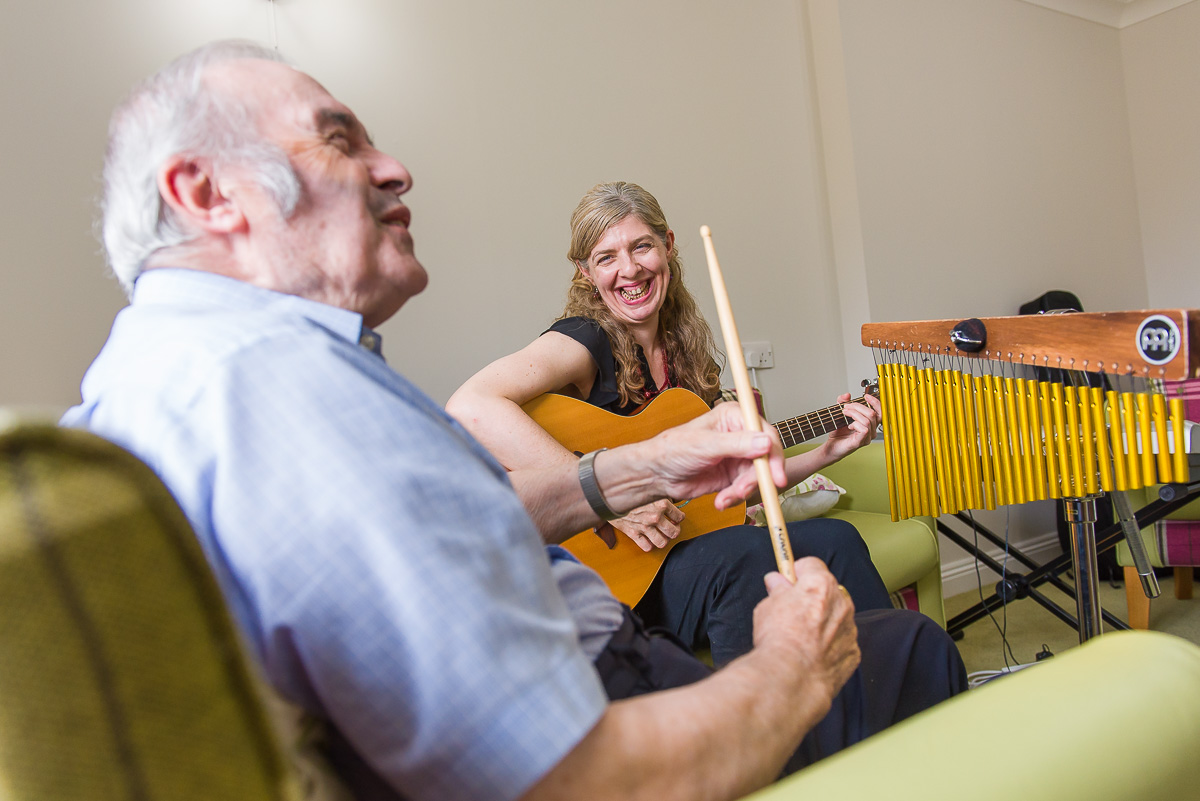- A
- A
- A
MHA response to Dementia and Music report

Ten years ago MHA pioneered music therapy in MHA’s specialist dementia care homes because we knew the difference it can bring to the lives of people living with dementia.
And now the Commission on Dementia and Music has produced its report, highlighting the importance of music-based interventions for people living with dementia and calling for it to be made more widely available. It is called ‘What would life be - without a song or dance, what are we?’
I was delighted to be part of the Commission, along with our Chief Music Therapist Ming Hung Hsu, and we worked closely with them to help them understand more about music therapy and how it helps our residents.
Music therapy is different to just taking part in a sing-a-long or listening to music. I liken it to the difference between having physiotherapy versus a massage. Highly trained music therapists interact directly with residents, helping reduce agitation and anxiety and seeing how people respond. Feedback is then given to carers and family members to help in day-to-day interactions.
The report has called for music therapy to be made available for more people living with dementia, something we wholeheartedly agree with. It is estimated to be available in 5% of care homes – our figure is 60%, which is the percentage of specialist dementia care homes we have.
Evidence shows that music helps to minimise some of the symptoms of dementia, such as agitation, and can help to tackle anxiety and depression. We can also observe the considerable value of music in improving the quality of life for people with dementia, by helping to increase social interaction and decreasing stress hormones.
Meanwhile, evidence heighted in the report suggests that there is a ‘memory bump’ for music. It appears that people with dementia retain the clearest memories for music they enjoyed and heard between roughly the ages of 10 and 30. This valuable insight offers us the opportunity to connect with loved ones with dementia, by understanding what might be most meaningful for them.
At MHA, we also join in with the call on the music industry, the public sector, clinicians, other charities, the technology sector and others to recognise and champion the right of people with dementia to have access to music. We also want to raise public awareness about how music and music therapy can be used to bring about valuable benefits and improve the lives of people with dementia.
Liz Jones, Head of Policy and Research
